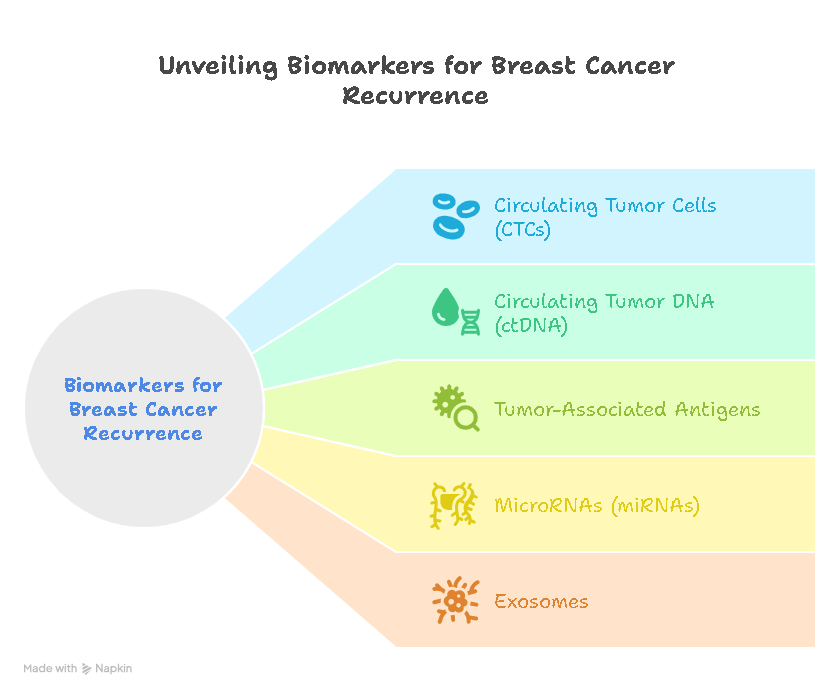Breast cancer is one of the most prevalent forms of cancer affecting women worldwide. For women diagnosed with breast cancer and pregnancy, the emotional and medical complexities can be overwhelming. This article aims to shed light on breast cancer and pregnancy, covering its impact on both mother and child, treatment options, and support available for expectant mothers battling this formidable disease.

- Introduction
- The Impact of Pregnancy on Breast Cancer 2.1. Breast Changes During Pregnancy 2.2. Detecting Breast Cancer during Pregnancy 2.3. Effect on Pregnancy Outcome
- Managing Breast Cancer During Pregnancy 3.1. Treatment Considerations 3.2. Risks and Benefits of Treatment Options 3.3. Multidisciplinary Care
- Pregnancy After Breast Cancer 4.1. Fertility Concerns and Options 4.2. Recurrence Risks and Surveillance
- Psychological and Emotional Support 5.1. Coping with a Breast Cancer Diagnosis during Pregnancy 5.2. Support Systems for Expectant Mothers
- Stories of Courage and Hope
- Conclusion

- The Impact of Pregnancy on Breast Cancer: During pregnancy, the breasts undergo significant changes to prepare for breastfeeding. However, these changes can sometimes make detecting breast cancer more challenging. Understanding these changes is crucial for early diagnosis and appropriate treatment.
- Breast Changes During Pregnancy: Hormonal fluctuations during pregnancy lead to breast enlargement, tenderness, and increased blood flow. Distinguishing normal changes from potential cancer symptoms is essential.1.2.
- Detecting Breast Cancer during Pregnancy: Breast cancer detection may be complicated by hormonal changes and the reluctance to pursue diagnostic tests during pregnancy. Learn about safe diagnostic approaches for pregnant women.1.3. Effect on Pregnancy Outcome: How does a breast cancer diagnosis impact the pregnancy? We discuss the potential effects on the developing baby and the importance of close medical monitoring.
- Managing Breast Cancer and Pregnancy: Treatment decisions for breast cancer during pregnancy require a careful balance between maternal health and the well-being of the unborn child.
- Pregnancy After Breast Cancer: For breast cancer survivors who wish to have a child after treatment, several considerations need to be taken into account.3.1. Fertility Concerns and Options: How does breast cancer treatment impact fertility? Discover fertility preservation options and family planning after overcoming breast cancer.3.2. Recurrence Risks and Surveillance: Understand the risks of breast cancer recurrence and the importance of regular follow-up and surveillance post-treatment.
- Treatment Considerations: Explore the available treatment options during pregnancy, including surgery, radiation therapy, chemotherapy, and targeted therapies.
- Risks and Benefits of Treatment Options: Understand the potential risks and benefits of various treatments and how they might affect the mother and baby when breast cancer and pregnancy is diagnosed.
- Multidisciplinary Care: The significance of a multidisciplinary healthcare team in managing breast cancer during pregnancy cannot be overstated. Learn about the collaboration between specialists to ensure the best possible outcomes.
- Psychological and Emotional Support: A breast cancer diagnosis during pregnancy brings immense emotional challenges, necessitating strong support systems.4.1. Coping with a Breast Cancer Diagnosis during Pregnancy: Strategies and resources to help expectant mothers cope with the emotional stress of a cancer diagnosis.4.2. Support Systems for Expectant Mothers: Information about support groups, counseling, and other services available to provide emotional support during this difficult journey.
- Stories of Courage and Hope: Drawing inspiration from real-life stories of women who faced breast cancer during pregnancy and emerged victorious.
- Conclusion: Breast cancer and pregnancy presents unique challenges, but with the right medical care, emotional support, and a positive mindset, women can navigate this journey with strength and hope. Early detection, effective treatment, and a well-coordinated healthcare team are crucial in ensuring the best outcomes for both the mother and her precious child.
Remember, knowledge is power, and staying informed about breast cancer and pregnancy is essential for expectant mothers and healthcare providers alike. By arming ourselves with knowledge, empathy, and compassion, we can contribute to a brighter future for mothers and children facing this formidable combination.
Pregnancy and Breast Cancer Research Advancements: Medical science continues to make remarkable strides in understanding breast cancer during pregnancy. Ongoing research is focused on improving diagnostic methods, tailoring treatments to suit pregnant patients, and enhancing the overall quality of life for expectant mothers facing breast cancer.
Diagnostic Innovations: Explore the latest advancements in breast cancer diagnostic techniques that are safe and effective for pregnant women, including advanced imaging technologies and minimally invasive procedures.
Targeted Therapies and Immunotherapy: Learn about cutting-edge treatments like targeted therapies and immunotherapy that hold promise for treating breast cancer while minimizing potential risks to the developing fetus.
Long-Term Outcomes: Investigate the latest research on the long-term effects of breast cancer treatment during pregnancy on both the mother’s health and the child’s development.
- Lifestyle Factors and Prevention: While the causes of breast cancer are complex, understanding lifestyle factors and preventive measures can contribute to a proactive approach to breast health.Lifestyle Factors: Discover how lifestyle choices, such as diet, exercise, and stress management, may play a role in reducing the risk of breast cancer.
- Preventive Measures: Learn about early detection strategies, genetic testing, and other preventive measures that can help women understand their risk and take proactive steps.
- Support for Partners and Loved Ones: Breast cancer during pregnancy affects not only the expectant mother but also her partner and loved ones. Understanding their perspectives and providing support is essential for a holistic approach.9.1. Partner Support: Explore ways in which partners can offer emotional support, help with decision-making, and cope with their own feelings during this challenging time.
- Supportive Family and Friends: Learn about the role that family members and friends can play in providing practical and emotional support throughout the pregnancy and treatment journey.
- Advocacy and Awareness: Advocacy plays a vital role in promoting breast cancer research, increasing awareness, and ensuring better care for pregnant women facing breast cancer.
Breast Cancer Awareness Initiatives: Highlight the significance of breast cancer awareness campaigns, their impact, and how individuals can actively participate in spreading awareness. Supporting Breast Cancer Organizations: Identify reputable organizations dedicated to breast cancer research and support, and how readers can contribute to their efforts
Resources and References: A compilation of reliable resources and references for readers seeking further information on breast cancer, pregnancy, and related topics.
Conclusion: Breast cancer during pregnancy remains a challenging but manageable journey, thanks to advancements in medical research, multidisciplinary care, and unwavering support systems. By staying informed and proactive, expectant mothers can confidently navigate their path to motherhood while battling breast cancer.
It is crucial to remember that every woman’s situation is unique, and decisions regarding treatment and pregnancy must be made in consultation with healthcare professionals. With the right knowledge, support, and hope, women can emerge from this experience as not just breast cancer survivors but as strong, resilient mothers who have triumphed over adversity for the sake of their child’s future. Together, we can continue to raise awareness, advocate for research, and support those facing breast cancer during pregnancy to create a world where mothers and babies thrive, no matter the circumstances.











Leave a Reply